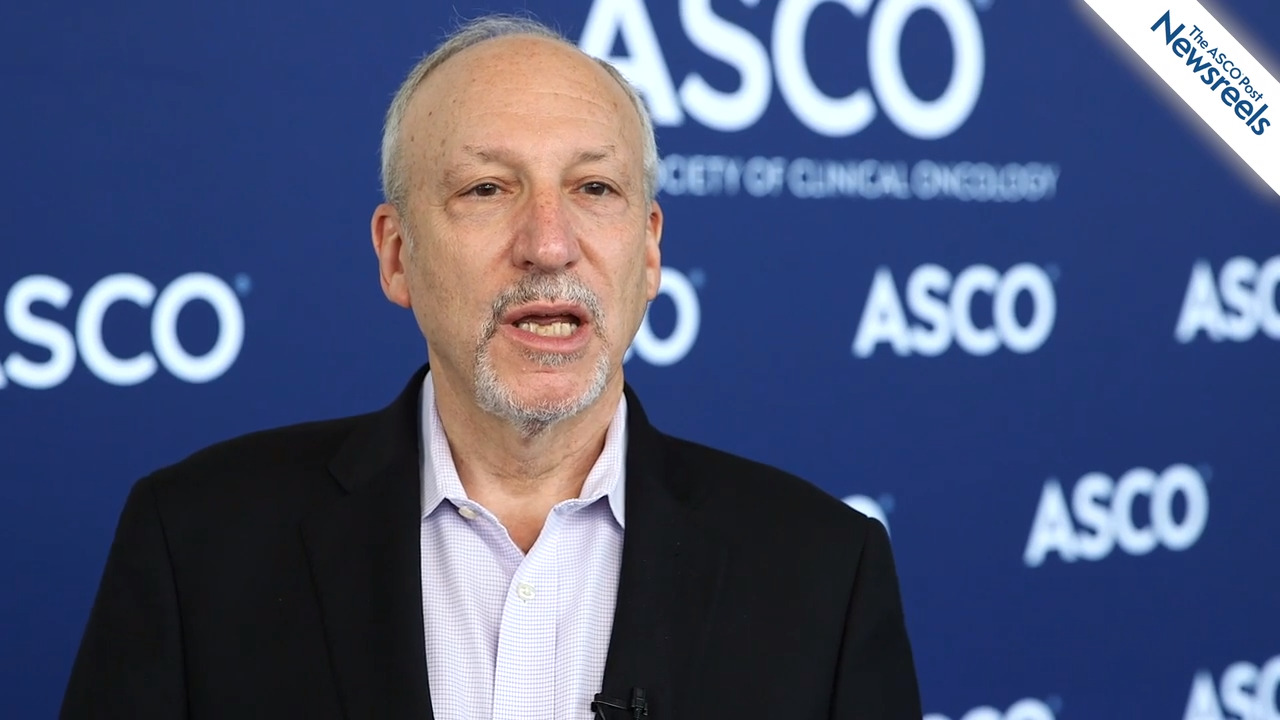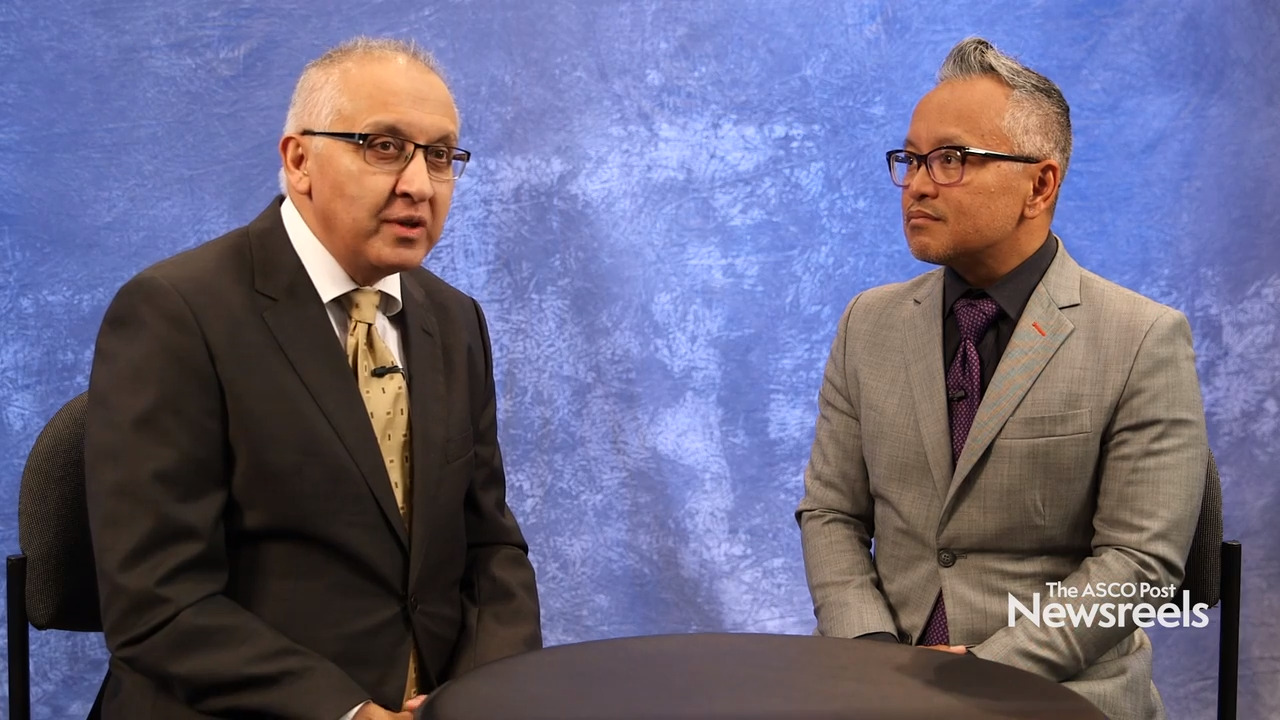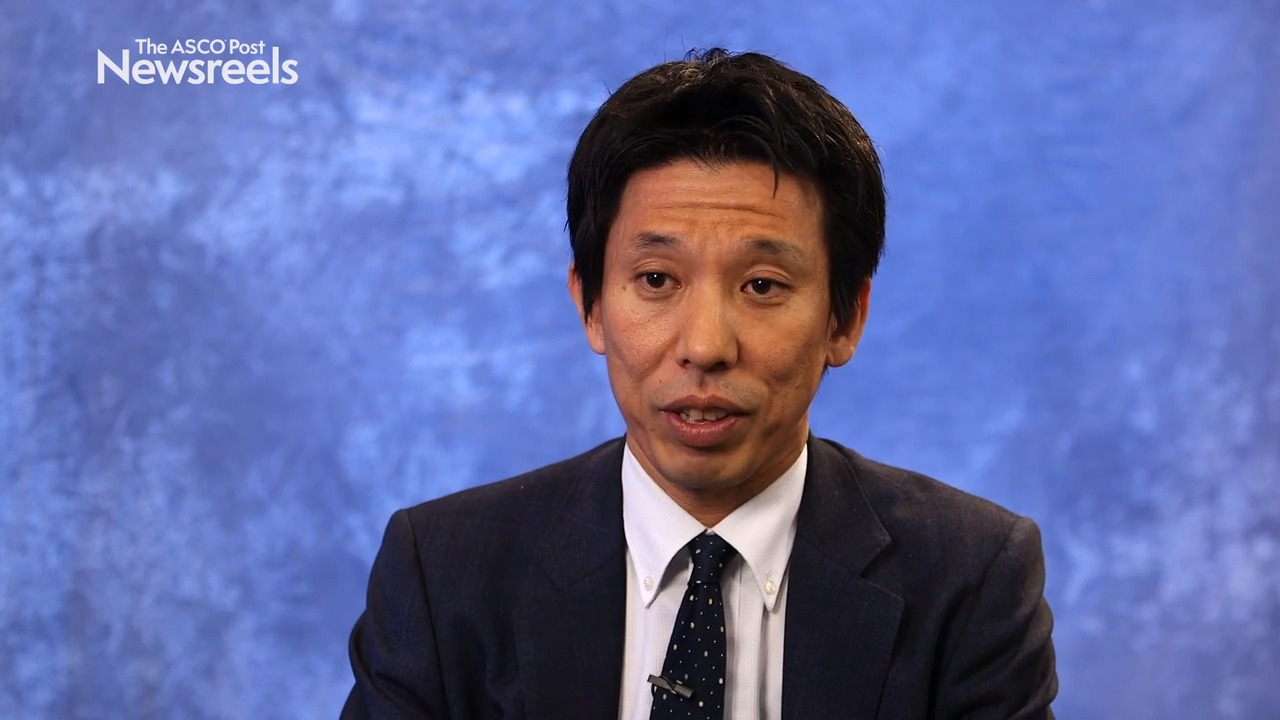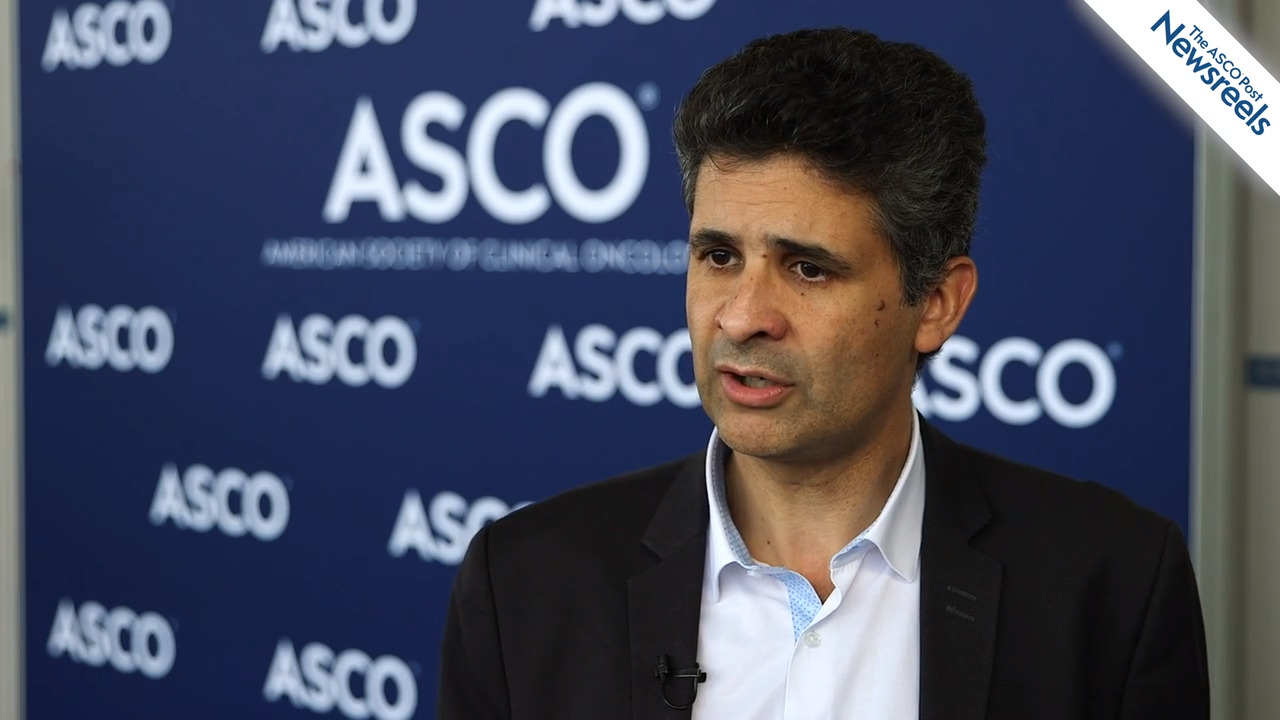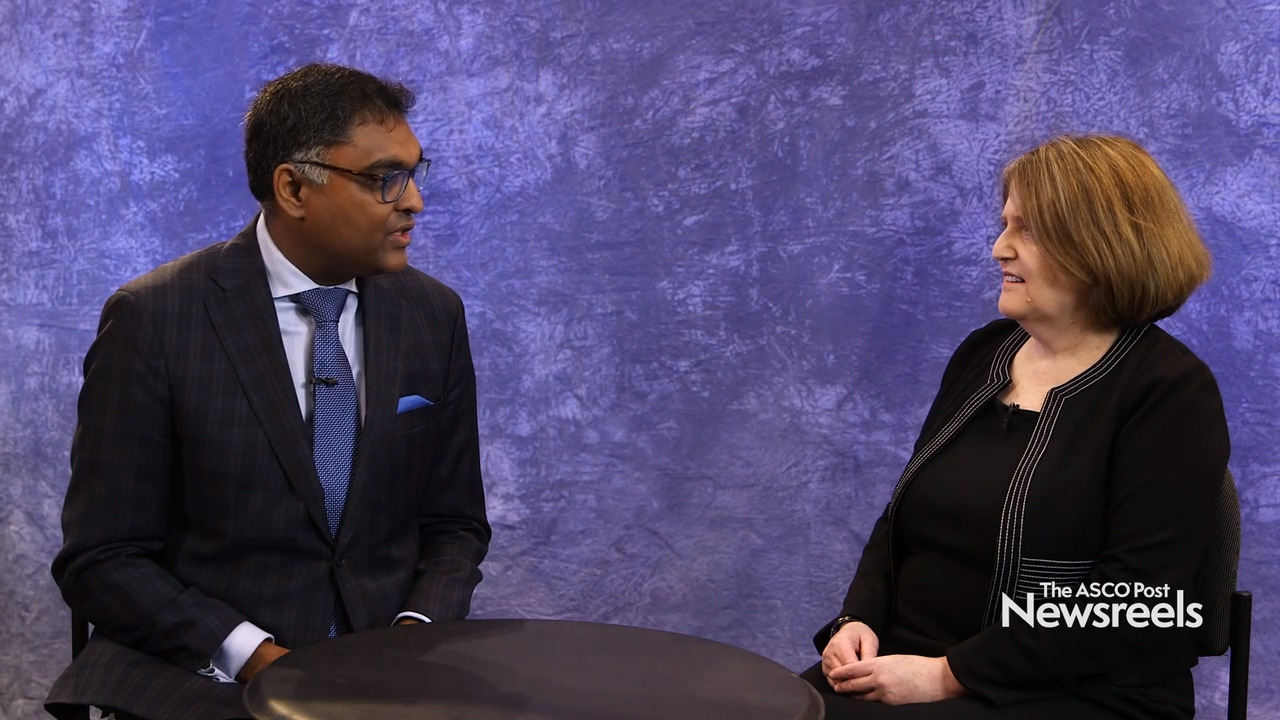Mark J. Levis, MD, PhD, on Acute Myeloid Leukemia: Gilteritinib in FLT3-Mutated Disease
2019 ASCO Annual Meeting
Mark J. Levis, MD, PhD, of The Sidney Kimmel Comprehensive Cancer Center at Johns Hopkins University, discusses the effect of gilteritinib on survival in patients with FLT3-mutated relapsed/refractory AML who have common co-mutations or a high FLT3-ITD allelic ratio, and the importance of FLT3-ITD testing at diagnosis and again at relapse (Abstract 7000).
Lee S. Schwartzberg, MD, of the West Cancer Center, reports on this past year’s progress of the ACCC initiative to speed adoption of immunotherapeutics in community practices.
Don S. Dizon, MD, of the Lifespan Cancer Institute, and Mansoor Raza Mirza, MD, of Copenhagen University Hospital, discuss study findings that showed, compared with niraparib alone, niraparib plus bevacizumab improved progression-free survival in women with recurrent platinum-sensitive ovarian cancer (Abstract 5505).
Hirotsugu Kenmotsu, MD, of Shizuoka Cancer Center, discusses the phase III JIPANG trial findings, which showed that pemetrexed plus cisplatin was not superior to vinorelbine plus cisplatin in terms of recurrence-free survival for patients with completely resected nonsquamous non–small cell lung cancer (Abstract 8501).
Karim Fizazi, MD, PhD, of the Institut Gustave Roussy, University of Paris-Sud, discusses study findings showing that not only does darolutamide prolong metastasis-free survival, it maintains quality of life as well as delays worsening of pain and disease-related symptoms compared with placebo for patients with nonmetastatic castrate-resistant prostate cancer (Abstract 5000).
Alok A. Khorana, MD, of the Cleveland Clinic, and Hedy L. Kindler, MD, of The University of Chicago, discuss phase III findings on olaparib as maintenance treatment following first-line platinum-based chemotherapy in patients with metastatic pancreatic cancer and a germline BRCA mutation (Abstract LBA4).
